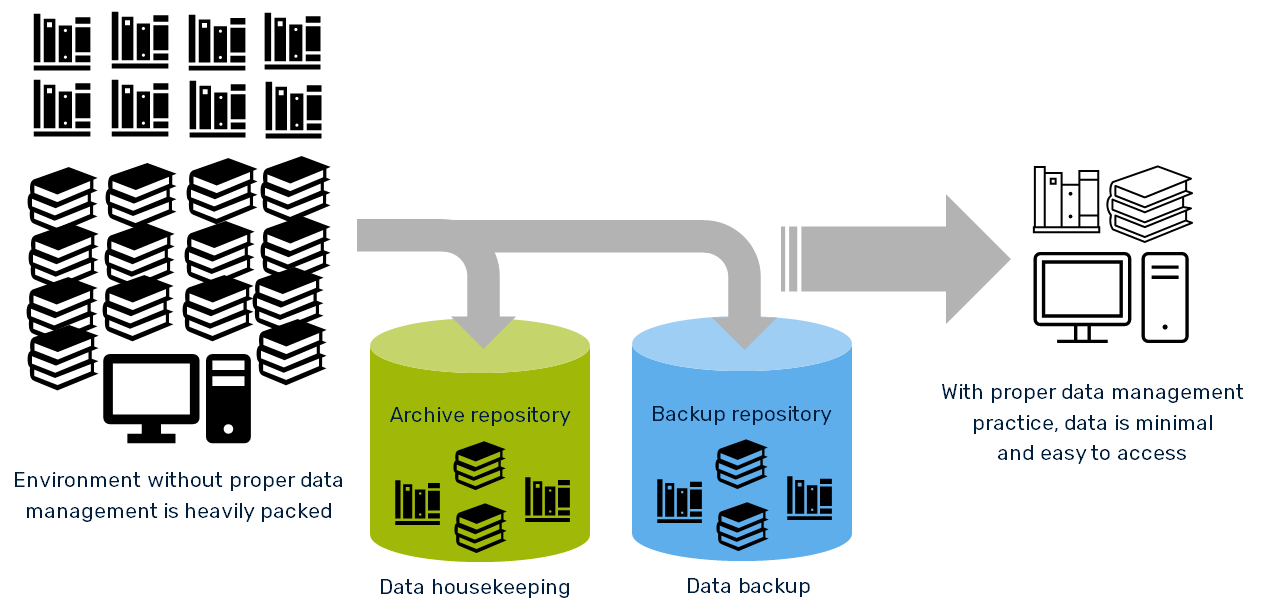Data Management
As you create and publish APIs, and administer API Gateway settings as a part of your business, the data generated from API Gateway gradually grows. The growing volume of data must be properly managed for optimal access and usage of the required data.
For an effective data management practice, Software AG strongly recommends that you perform the following :
 Data housekeeping
Data housekeeping. Helps you maintain a hassle-free database and enhances your data access experience.
 Data backup
Data backup (Data management for data recovery). Helps you protect your data and lets you recover it when there is a data loss.
Data housekeeping
In general terms, housekeeping refers to the cleansing tasks in a house, hotel, or any other location. Housekeeping ensures the cleanliness of your location and keeps unwanted elements (dust, insects) away from the home.
Similarly, Data housekeeping is the cleansing of API Gateway data to ensure that your working environment has high quality updated data that is easy to access.
Data is recorded for every transaction on your APIs. As a result, data present in your API Gateway increases significantly. This data can become obsolete over time and needs to be cleansed. You must have a solid data maintenance framework to eliminate obsolete data and only retain essential data. Absence of such a data maintenance framework can impact your operational efficiency after a few months.
Housekeeping removes the obsolete data and thus ensures that your API Gateway data is of the highest quality. When your API Gateway is free from obsolete data, your operational efficiency is enhanced, and your overall system performance gets better.
Data backup for data recovery
To protect against accidental loss of data, you should take regular backups of your data.
Data losses can occur in many forms, from hardware failures to data center outages, human errors, security threats, or other unexpected events. Legal compliance requirements or business continuity planning may ask for measures that allow systematic handling of such data loss scenarios.
Backup refers to the practice of making periodic copies of important data to a separate storage area. If the original data is lost or damaged, then use a copy to recover it.
